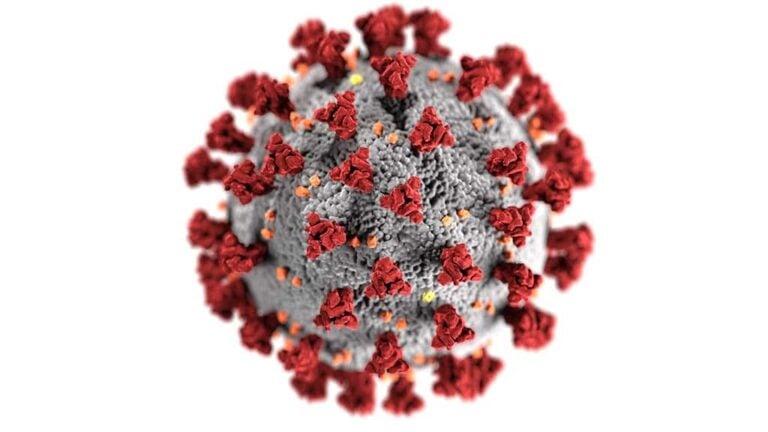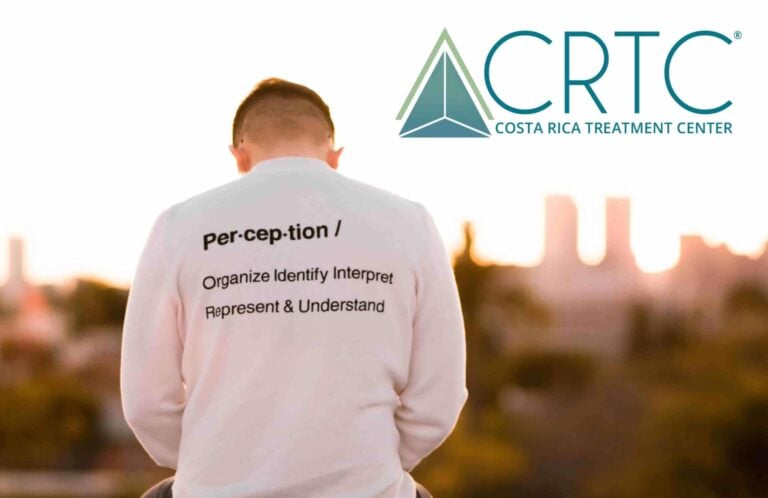Many people struggling with depression, anxiety, stress or a combination of these common mental health issues turn to self-medication to find relief. Self-medicating refers to…
Many people struggling with depression, anxiety, stress or a combination of these common mental health issues turn to self-medication to find relief. Self-medicating refers to using alcohol, illicit or misused prescription drugs to try to alleviate symptoms, without medical supervision. While self-medication seems like a quick and easy solution, it often leads to more problems down the road.
At Costa Rica Treatment Center (CRTC), we understand the challenges surrounding mental illness and addiction. We know that people self-medicate with substances because they desperately want relief from emotional suffering and lack healthy coping strategies. However, we also recognize that self-medication causes far more harm than good in the long run. This article provides a comprehensive overview of treatment options to help people struggling with mental health issues and addiction find hope and healing.
What Does It Mean To Self-Medicate?
Self-medicating refers to using alcohol, prescription medications, or illegal drugs to try to relieve emotional, mental, or even physical pain without medical supervision. It’s an unhealthy coping mechanism where someone uses substances to change how they feel both emotionally and physically, rather than seeking appropriate treatment.
People often turn to self-medication because they feel it’s an easy and quick way to lessen their emotional distress, improve focus, or relieve unpleasant symptoms associated with mental health conditions. However, self-medication can easily lead to substance abuse and addiction problems.
Many people start self-medicating with alcohol or drugs before they have received a formal diagnosis for a mental health issue. They may be experiencing symptoms of depression, anxiety, bipolar disorder, PTSD, or other conditions, but have not yet spoken to a doctor or mental health professional. Without a diagnosis, they try to resolve their distressing psychological symptoms on their own through substance use.
Unfortunately, self-medicating depression, anxiety, and stress can lead to developing an addiction before the root mental health disorder is even identified and properly treated. Some common symptoms that people attempt to self-medicate away include chronic sad moods, feelings of hopelessness, excessive fears or worries, panic attacks, irritability, angry outbursts, muscle tension, inability to relax or concentrate, social isolation, disturbed sleep patterns, loss of interest in activities, and more. It is critical to seek professional assessment for ongoing mental health symptoms instead of attempting poorly informed self-treatment with potentially addictive substances.
What Are The Causes and Effects of Self-Medicating?
There are several key reasons why someone with depression, anxiety, stress or a combination may turn to substances as a means of self-medication. Those struggling with mental health issues often feel overwhelmed by debilitating symptoms like inner turmoil, chronic worry, inability to relax, pervasive sadness or lack of energy and motivation. Alcohol and drugs can provide quick, temporary relief from these painful symptoms. However, the relief is very short-lived.
If people aren’t taught healthy coping skills to manage difficult emotions, past trauma, grief, and daily stresses from a young age, they may later resort to substances to numb their psychological or physical pain. Those who grew up in dysfunctional households where substance misuse was present may mimic what they observed from parents or family members, viewing it as normal behavior. Individuals who experienced trauma or adverse childhood events like abuse, neglect, household dysfunction, or loss of a parent without proper support are more prone to self-medicating unresolved pain. They simply never learned appropriate ways to process and cope with inner turmoil, anxiety, depression, anger, and emotional triggers.
Access to alcohol, marijuana, and both legal and illegal prescription medications provides an easy avenue for self-treatment compared to therapy and medical care which require time, effort, and insurance coverage. When faced with mental health symptoms, self-medication seems like a quick and simple fix because healthy coping skills were not instilled early in life.
Some people turn to misusing stimulants like cocaine, methamphetamine, or prescription amphetamines in an attempt to increase their work performance, concentration, and energy when they feel overwhelmed by expectations and responsibilities. Highly competitive corporate environments, academic pressure, demanding jobs, and even intense parenting duties can cause some individuals to feel like they need a performance boost to keep up.
They may start using stimulants to provide more focus, alertness, and productivity when facing large workloads, looming deadlines, evaluations, or any responsibilities that feel excessively stressful. While stimulants may temporarily enhance concentration and wakefulness, chronic misuse leads to addiction and myriad health complications. Relying on substances to try to optimize performance is extremely risky and unhealthy behavior.
Those who have already developed a substance use disorder or addiction may continue to self-medicate with alcohol or drugs to find relief from any emotional or mental health problems. This is often done to avoid experiencing unpleasant withdrawal symptoms that occur when dependent individuals stop using. Withdrawal syndromes vary depending on the substance but may include flu-like symptoms, tremors, insomnia, nausea, anxiety, and more.
The severity of withdrawals typically increases each time heavy use resumes after a period of abstinence. Some even experience potentially dangerous symptoms, and withdrawal should only be done under medical supervision. Fear of these difficult withdrawals keeps many addicted individuals trapped in the cycle of self-medication. This pattern makes seeking professional help for addiction and underlying disorders even more essential.
How to Stop Self-Medicating:
For those who have been self-medicating underlying mental health issues with drugs or alcohol, specialized dual diagnosis programs can provide major relief. Dual diagnosis refers to having both a mental health disorder and a co-occurring substance use disorder. This is very common, as many turn to addiction to cope with untreated conditions like depression, anxiety, bipolar disorder, PTSD and more.
Dual diagnosis treatment takes an integrated approach to care that addresses both disorders at the same time. Treating the addiction and mental health issue in isolation from each other is not as effective. An integrated approach helps clients get to the root causes behind their desire to self-medicate, while also overcoming dependency on substances.
Key components of comprehensive dual diagnosis programs include:
- Psychological assessment and psychiatric services to accurately diagnose and treat any mental health disorders present. This may involve counseling, medication management, cognitive behavioral therapy, EMDR, and other treatments tailored to the individual.
- Medically-supervised detox in a safe environment to minimize difficult or dangerous withdrawal symptoms that often prevent addicted individuals from stopping drug or alcohol use. This provides a more comfortable entry into treatment.
- Substance abuse education and counseling focused on identifying triggers, learning new coping techniques, establishing a sober support system, and more tools to prevent relapse.
- Incorporation of holistic therapies like art, music, yoga, mindfulness practices, or equine therapy to provide additional healthy coping mechanisms for life’s stresses.
- Ongoing aftercare planning including peer support groups, relapse prevention strategies, linkage to community resources, and continued therapeutic support to help maintain sobriety.
What Are The Dangers of Self-Medication?
While providing temporary relief of symptoms, self-medication ultimately makes the underlying mental health disorders and life circumstances much worse in the long run. Professional treatment should be sought instead to address the root causes in a healthy, sustainable way.
Using alcohol or drugs to self-medicate may seem harmless initially, but it comes with many risks and dangers:
Worsening Mental Health Symptoms – Continued substance use often exacerbates anxiety, depression, mood swings, paranoia, suicidal thoughts, and other mental health symptoms over time. For example, those self-medicating social anxiety may experience more intense anxiety and panic attacks with ongoing misuse.
Triggering New Mental Health Issues – If you are already at risk for a mental health disorder, alcohol consumption or drug abuse could lead to the emergence of additional mental health issues. For instance, opioid and alcohol abuse have been associated with depression, while stimulant, hallucinogen, and Ketamine abuse has been linked to psychosis.
Interactions With Prescription Drugs: Abusing alcohol or drugs can negatively impact the effectiveness of any prescriptions you are taking, as well as cause unpleasant side effects.
Development of Substance Use Disorders – Frequent self-medication often leads to increased tolerance, physical dependence, intense cravings, and addiction. These substance use disorders bring life-threatening risks like accidental overdose and organ damage. Those addicted have an extremely difficult time stopping self-medication on their own.
Erratic, Risky Behavior – Intoxication from illicit or misused prescription drugs lowers inhibitions and impairs judgment, leading to reckless behavior, or possibly aggression.
Accidents and Severe Injuries – Being intoxicated increases risks of motor vehicle accidents, falls, burns, assaults, and other traumatic injuries due to impaired functioning and coordination. These can leave lasting disabilities or cause untimely death.
Physical and Mental Health Complications – Each substance carries its own set of potential physical health risks including organ damage, cognitive deficits, and increased mental health symptoms. Chronic misuse of alcohol or drugs through self-medication severely compromises overall health.
Delaying or Preventing You From Seeking Assistance– Once you have committed to self-medicating, it can be challenging to change your mind and explore healthier, more effective ways to deal with your difficulties. However, if you recognize how your substance abuse is exacerbating rather than resolving your problems, you may begin to address them once and for all.
The Cycle of Self-Medicating
It’s essential to recognize that self-medicating anxiety, stress or depression may offer a temporary escape, but it ultimately hinders personal growth and well-being, trapping individuals in a cycle that can be detrimental to their lives.
1. Triggering Emotions
The cycle of self-medicating usually begins with the presence of triggering emotions or experiences. These triggers could be stress, anxiety, depression, loneliness, or unresolved trauma. The individual might feel overwhelmed by these emotions and seeks a way to escape or numb the pain.
2. Self-Medication
In an attempt to alleviate the emotional distress, individuals turn to substances or behaviors that offer a temporary reprieve. This can include using alcohol or drugs, overeating, or engaging in other addictive behaviors. These substances or actions may provide a sense of relief and euphoria, creating the illusion of improved well-being.
3. Short-Term Relief
Self-medicating can indeed provide short-term relief from emotional pain. The substances used can alter brain chemistry and temporarily dull the negative emotions, leading to feelings of relaxation or euphoria. This reinforces the belief that self-medication is an effective coping strategy.
4. Escalation and Tolerance
Over time, the body and mind can build a tolerance to the substances or behaviors used for self-medication. This means that to achieve the same relief, individuals often have to increase their consumption or engagement in these activities. This escalation can have negative consequences on physical and mental health.
5. Diminished Coping Skills
As self-medication continues, individuals may rely less on their natural coping mechanisms and increasingly depend on substances or behaviors. This leads to a decline in their ability to handle life’s challenges effectively. Their emotional resilience and problem-solving skills may erode.
6. Negative Consequences
The cycle of self-medicating can result in various negative consequences, such as health problems, relationship issues, financial difficulties, and deteriorating mental health. These consequences, in turn, can intensify the initial triggering emotions, further perpetuating the cycle.
7. Guilt and Shame
As negative consequences pile up, individuals often experience guilt, shame, and regret. These emotions can exacerbate the emotional pain they were initially trying to escape, leading to even more self-medication.
8. Repeat the Cycle
In an attempt to alleviate the guilt, shame, and emotional pain, individuals often return to self-medication, starting the cycle anew. The temporary relief offered by the substances or behaviors can feel like the only escape from their emotional turmoil.
Recognize Your Self-Medication Patterns.
It is common to try to excuse your substance usage, underestimate how much or how often you use or deny that you have a problem at all, whether you are drinking or using drugs (or both). You can try to blame external factors for your marital issues or money difficulties, for example.
Anyone can get depressed, anxious, or stressed due to the epidemic, the economic recession, and rising unemployment. However, it is also critical to recognize how the amount of time and money you spend drinking or using drugs may be contributing to your difficulties.
Denial can also arise because of mental health problems. You could be embarrassed to acknowledge that you are having trouble coping with sadness or anxiety, for example. While it may appear to be easier to ignore your problems and hope they go away, denial is the first step toward rehabilitation.
Admitting that you have a mental health issue is not a sign of weakness or a flaw in your character. Whatever challenges you are dealing with, there are efficient ways to deal with them and reclaim control of your life.
Keep track of your drug and alcohol use as well as your moods. Keep a note of when you use alcohol or drugs, how much you use, and how you feel when you first start—stressed, nervous, unhappy, or bored, for example—for several weeks. You should be able to discover similarities and mood triggers in your substance use behaviours after reviewing the results.
For a few days each week, avoid using them. Are you able to stay away from drugs and alcohol for some days? Keep a note of how you are feeling during those days—do you feel less stressed, anxious, or depressed when you avoid their usage? Are you able to sleep properly? Is it possible to pass the time by finding healthier and more effective ways to manage your emotions?
Tip #4: Use A Variety Of Therapies.
A dual diagnosis or co-occurring condition occurs when self-medicating a mental health issue triggers a substance abuse problem (addiction or dependency). To obtain therapy for a co-occurring disorder, you’ll need to address both the substance abuse problem and the mental health problems that first prompted your drug or alcohol use. Detoxification, withdrawal management, therapy, and/or attendance at peer support groups may all be part of your substance misuse treatment. Depending on the intensity of the addiction, some people can attain and maintain recovery independently with the help of friends and loved ones, while others require professional assistance.
Self-help techniques, healthy lifestyle modifications, individual or group therapy, and medication may be used to treat your mental health issues.
What can you do to assist someone who is choosing self-medication?
It might be challenging to assist a loved one who is self-medicating. It would help if you overcame any denial they may have regarding their difficulties or substance usage, assisting them in recognizing why they are self-medicating, and then address both the underlying condition and the problems caused by their drinking or drug usage.
It is crucial to keep in mind that you cannot take care of your loved one’s difficulties for them. You cannot make someone deal with their mental illness any more than you can make someone stay sober. You can, however, urge your loved one to seek assistance while also offering your love and support.
Speak with the individual. Talk to your loved one about the harmful behaviours and difficulties you have noticed while you are both sober and calm. Listen to them without being judgmental or accusatory and encouraging them to open to you.
Find out as much as you can about the person’s underlying mental health problems that have led them to self-medicate. You will be better able to support your loved one’s rehabilitation if you have a greater understanding of what they are going through.
Encourage your loved one to get medical assistance. Suggest seeing a doctor for a general checkup and perhaps offer to accompany them on the initial visit. Speaking with a professional about their reasons for self-medicating may help them see their difficulties more clearly.
When your loved one is alcoholic, do not drink or use drugs with them or quarrel about their substance usage. Instead, spend your time together doing interesting, healthy activities and hobbies that do not require drinking or using drugs.
Encourage people to interact with one another. It can be tempting for someone who is depressed, anxious, or suffering from any mental health issue to escape into their shell. However, maintaining social contact and receiving support from friends and family members is critical for their recovery.
Define your limitations. Be honest with yourself about how much care and time you can provide your loved one without becoming overwhelmed. Set and keep to boundaries for inappropriate behaviour. Allowing the difficulties of a friend or loved one to take over your life is unhealthy for both of you.
Patience is required. It takes time to recover from depression, anxiety, or any other ailment that caused them to self-medicate. Relapse is a regular occurrence throughout the recovery process. Be patient, optimistic, and encouraging.
Seek out your own help. It is easy to become depressed because of your loved one’s troubles. Talk to a trusted friend or family member about what you are going through. Getting your treatment or joining a support group for persons dealing with similar challenges may also be beneficial.
CONCLUSION
In conclusion, self-medication is a growing challenge that affects many people struggling with depression, anxiety, and stress. It is a risky coping mechanism that can lead to addiction and cause more harm than good. Self-medicating can make the mental health symptoms worse and trigger new issues, delay or prevent seeking professional help, and even impact one’s physical health. It is essential to recognize the signs of self-medication and seek healthier ways to manage stress and emotional distress. Seeking professional help, building a support system, and practicing healthy habits are effective ways to cope with mental health challenges and avoid the harmful effects of self-medication. It takes courage and strength to acknowledge and address mental health concerns, but it is worth it for a healthier, happier life.








